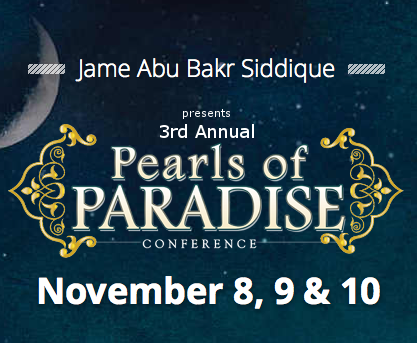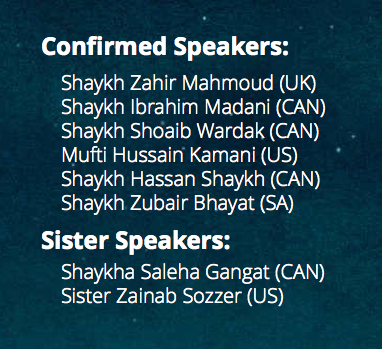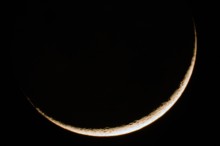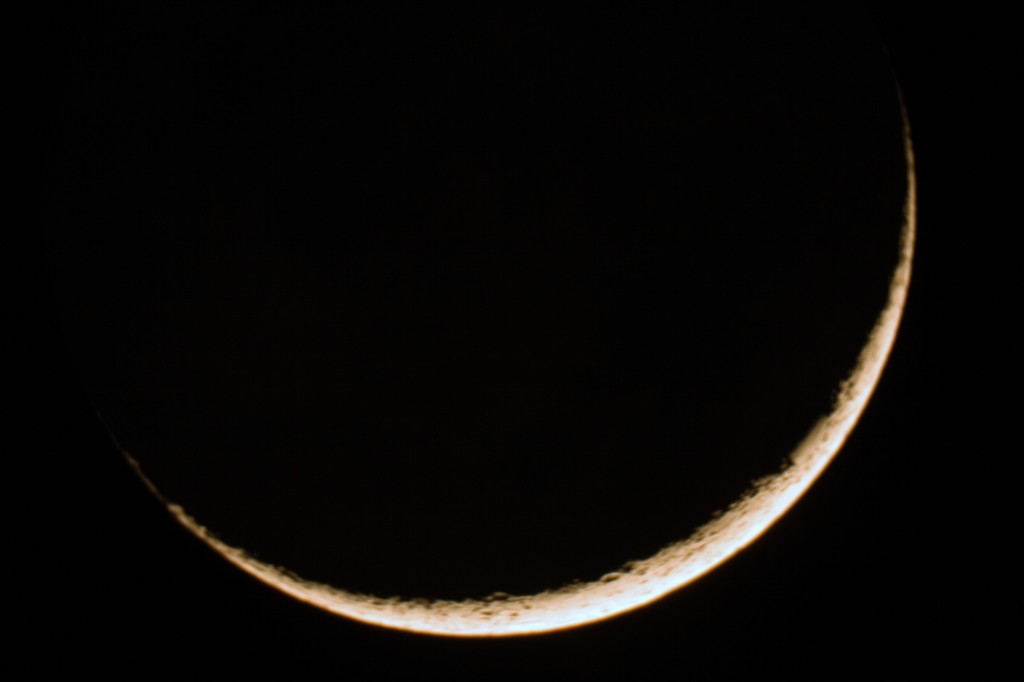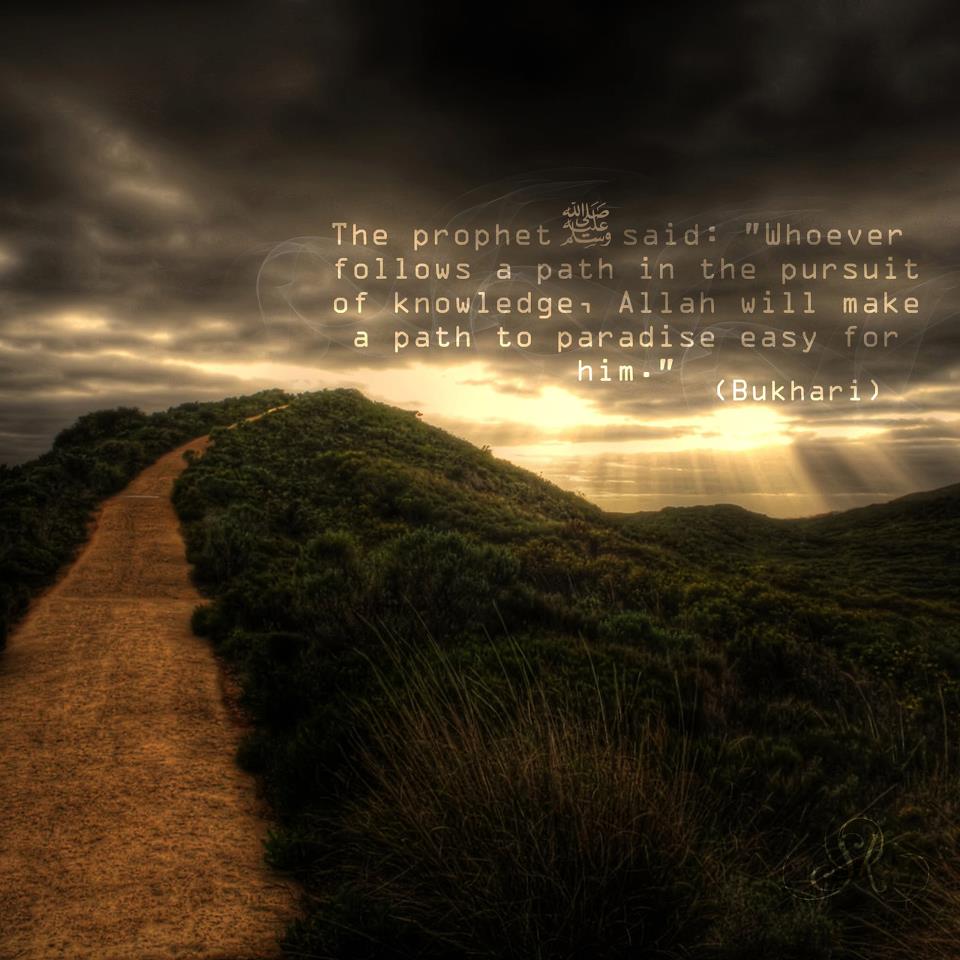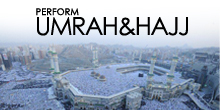 All Praise belongs to Allāh, the Lord of the Worlds, and may the Peace and blessings of Allāh be upon his Messenger, his family and on all of his companions.
All Praise belongs to Allāh, the Lord of the Worlds, and may the Peace and blessings of Allāh be upon his Messenger, his family and on all of his companions.
Throughout the year Allāh (subḥānahu wa ta`āla) grants His servants with ample opportunities to have their past sins forgiven and to start anew. One of these special occasions is closely approaching us, known as`Āshūra.
Much confusion surrounds this day. Some Muslims treat this occasion as a day of celebration and joy, and a time where special dishes are prepared. Conversely, the Shi’ites spend the very same day, beating and injuring themselves, and marking it as a day of sadness and mourning.
In this short article, I hope to dispel some of the myths surrounding this day and explain the position of Ahl as-Sunnah with regards to the above two practices.
I have divided the article into three parts. In the first part, I have gathered some of the aḥādīth regarding the merits of `Āshūra; I have made an effort to distinguish between the authentic and the weak narrations. Then in the following two sections, I discuss the innovation of taking `Āshūra as a day of mourning and the innovation of taking it as a day of joy, respectively.
Some Authentic Aḥādīth Regarding `Āshūra
1. `Ā’īshā (raḍī Allāhu anhā) said: “The people of Quraysh used to fast on the day of `Ashūra in the pre-Islamic days. When the Messenger of Allāh (ṣallallāhu ‘alayhi wa sallam) migrated to Madīnah, he observed this fast and commanded others to observe it. But when fasting during the month of Ramaḍān was made obligatory he left the [fast of] `Āshūra (i.e. it was no longer obligatory); [1] so whosoever wished to observe this fast, did so, and whosoever wished to leave it, did so.” [Agreed Upon]
2. Abū Musā al-Ash`arī (raḍī Allāhu anhu) said: The day of `Āshurā was one that the Jews respected and treated as a day of festival. The Messenger of Allāh (ṣallallāhu ‘alayhi wa sallam) instructed us: “You should also observe fast on this day.” [Agreed Upon]
3. Humayd b. `Abd ar-Raḥmān narrated that he heard Mu`āwiyah b. Abū Sufyān (raḍī Allāhu anhumā) say, while delivering a sermon on the pulpit on the day of `Āshūra in the year he came for Hajj: “People of Madīnah, where are your scholars? I heard the Messenger of Allāh (ṣallallāhu ‘alayhi wa sallam) say: ‘This is the day of `Āshūra. Allāh has not made fasting on this day compulsory on you, but I am fasting. So whosoever wishes to observe the fast from amongst you, should do so, and whoever does not wish to observe it, may do so.’” [Agreed Upon]
4. Ibn `Abbās (raḍī Allāhu anhu) said: “When the Messenger of Allāh (ṣallallāhu ‘alayhi wa sallam) came to Madīnah, he found the Jews fasting on the day of `Āshūra. He asked: ‘What is this [that you are doing]?’ They replied: ‘This is a righteous day. On this day Allāh saved the Israelites from their enemies, and so Moses, on this day, observed a fast.’ The Messenger of Allāh (ṣallallāhu ‘alayhi wa sallam) said: ‘I have a greater right on Moses (alayhis salām) than you.’ So, he observed the fast (on that day) and ordered the Muslims to also fast.’ [Agreed Upon]. [2]
5. Ar-Rab`ī b. Mu`awadh (raḍī Allāhu anhā) said: “The Messenger of Allāh (ṣallallāhu ‘alayhi wa sallam) sent a envoy to the village of the Anṣār in the morning of the day of `Āshūra announcing: ‘Whoever has eaten something should not eat but complete the fast, and whoever is observing the fast should complete it.’” She further said: “Since then we fasted regularly on that day and also make our sons fast. We used to make toys of wool for the boys and if anyone of them cried for food, we would give them these [toys] until it was time to break the fast.” [Agreed Upon]
6. `Abd Allāh b. `Umar (raḍī Allāhu anhu) narrated: “The Messenger of Allāh (ṣallallāhu ‘alayhi wa sallam) observed the fast on the day of `Āshūra and ordered others to also fast. When fasting during Ramaḍān was made compulsory, he left it.” `Abd Allāh would not fast on this day unless it coincided with his (normal days of) fasting. [al-Bukhārī and Aḥmad]
7. Ibn `Abbās (raḍī Allāhu anhumā) narrated: “I do not know the Messenger of Allāh (ṣallallāhu ‘alayhi wa sallam) singling out any days for fasting, and considering it more excellent than another, except for this day [the day of `Āshūra] and that month – meaning the month of Ramaḍān.” [Agreed Upon]
8. Abū Qatāda al-Anṣārī (raḍī Allāhu anhu) narrated that the Messenger of Allāh (ṣallallāhu ‘alayhi wa sallam) said: “Fasting three days every month and [fasting] the whole [month] of Ramaḍān every year is a perpetual fast. The fast of the day of `Arafah, [I consider it to] expiate the sins of the preceding and the coming year. The fast of the day of `Āshūra, [I consider it to] expiate the sins of the preceding year.” [Muslim, Aḥmad, Abū Dāwūd and Ibn Khuzaymah] [3]
9. Ibn `Abbās (raḍī Allāhu anhumā) narrated that when the Messenger of Allāh (ṣallallāhu ‘alayhi wa sallam) fasted on the day of `Āshūra and commanded that it be observed as a fast, they (his Companions) said to him: “Messenger of Allāh (ṣallallāhu ‘alayhi wa sallam), it is a day which the Jews and Christians hold in high esteem.” Thereupon the Messenger of Allāh (ṣallallāhu ‘alayhi wa sallam) said: “When the next year comes, Allāh willing, we will observe fast on the ninth.” The Messenger of Allāh (ṣallallāhu ‘alayhi wa sallam) died before the advent of the next year. [Muslim, Aḥmad, Abū Dāwūd and Ibn Mājah] [4]
10. Abū Mūsā (raḍī Allāhu anhu) narrated that the people of Khaybar, [most of whom were Jews] observed the fast on the day of `Āshūra and treated it as a festive day. Their women would wear ornaments and beautiful dresses. The Messenger of Allāh (ṣallallāhu ‘alayhi wa sallam) said: “You (only) observe fast on this day.” [Muslim]
Some Weak Aḥadīth Regarding `Āshūra
1. Ibn `Abbās (raḍī Allāhu anhumā) narrated that the Messenger of Allāh (ṣallallāhu ‘alayhi wa sallam) said: “Fast on the day of `Āshūra and differ from the Jews; fast a day before it or a day after it.” [Weak] [Aḥmad, Ibn Khuzaymah, al-Ḥumaydī, at-Tahāwī in Ma’ānī al-Āthār, al-Bazzār, Ibn `Adī in al-Kāmil, al-Bayhaqī in al-Kubra and ash-Shu`ab] [5]
2. Ibn ‘Abbās (raḍī Allāhu anhumā) reports that the Messenger of Allāh (ṣallallāhu ‘alayhi wa sallam) said: “He who fasts on the day of `Arafah, his fast will be a compensation for the sins of two years, and he who fast in the month of Muḥarram will receive the reward of thirty fasts for each fast.” [Fabricated] [aṭ-Ṭabrāni in as-Saghīr] [6]
3. Abū Hurayrah (raḍī Allāhu anhu) and others narrate: “One who increases [his spending] on his family on`Āshūra, Allāh will increase it for him throughout the year.” [Weak] [Al-Bayhaqī in ash-Shu`ab, al-Uqaylī in aḍ-Ḍu’afā, Ibn `Adī in al-Kāmil, Ibn al-Jawzī in al-Illal and others] [7]
The Innovation (Bid`ah) of Commemorating `Āshūra as a Day of Mourning
On the 10th of Muḥarram (the day of `Āshūra), in the year 61 A.H. the Prophet’s (ṣallallāhu ‘alayhi wa sallam) beloved grandson al-Ḥusayn b. `Alī b. Abī Ṭālib (raḍī Allāhu anhumā) was martyred. Undoubtedly the murder of the grandson of the Messenger of Allāh (ṣallallāhu ‘alayhi wa sallam) was a sad day in Islamic history. However, he was not the first to be martyred; rather, he was preceded by many great companions who were also killed unjustly, including `Umar, Uthmān, al-Ḥusayn’s own father, `Alī b. Abī Ṭālib and his brother al-Hassan (raḍī Allāhu anhūma).
After the death of Alī b. Abī Tālib (raḍī Allāhu anhū), some of the companions pledged allegiance to al-Ḥasan (raḍī Allāhu anhū), regarding whom the Messenger of Allāh (ṣallallāhu ‘alayhi wa sallam) said: “This son of mine is a chief, and Allāh will make peace between two large groups of Muslims through him.” [al-Bukhārī].
After a short period he was also martyred, and some tribes wrote to his brother al-Ḥusayn (raḍī Allāhu anhu) promising him support and allegiance if he was to come to them at Kūfa. Ibn `Abbās and Ibn `Umar (raḍī Allāhu anhumā) both advised al-Ḥusayn against accepting their invitation, as they felt that the people inviting him were treacherous and untrustworthy.
Al-Ḥusayn (raḍī Allāhu anhū) relying on the words of the Kūfans set out for the city with his family and followers. On the way he was deserted by his followers and betrayed by the Kūfans. Consequently, he was left with a small band consisting of his family members and friends (a total of 72 people) in the middle of the sandy desert of Karbala fighting against the governor of Kūfa, `Ubayd Allāh b. Ziyād, and his troops of more than 4000 men. The entire group was massacred on the 10th of Muḥarram.
It was after this incident that the Shi’ites, who considered Al-Ḥusayn (raḍī Allāhu anhū) as the third Imām and rightful successor of the Prophet, began to take this day as a day of grief and sadness, mourning the fact that they were not present at the battle to fight and save al-Ḥusayn and his family.
Ibn Taymiyyah writes: “Satan took the opportunity with the death of al-Ḥusayn (raḍī Allāhu anhū) to introduce two innovations: the innovation of showing sadness and mourning on the day of `Āshūra by slapping, screaming, crying and lamenting, and (the innovation of) cursing the Ṣahābas (companions of the Prophet).”
He then reminds the reader that wailing and excessive mourning over past calamities was clearly prohibited by Allāh and His Messenger.
Allāh (ṣubhānahu wa ta’ālā) says in the Qur`ān:
“We will try you with fear and hunger, and loss of wealth and lives, and fruits; but give glad tidings to those who are patient. Who, when a misfortune overtakes them, say: `To Allah we belong and to Him we shall return.’ It is these on whom descend blessings and mercy from their Lord, and it is they who are rightly guided.” [Surah al-Baqarah: 155-157]
Also the Messenger of Allāh (ṣallallāhu ‘alayhi wa sallam) said: “He who slaps his cheeks, tears his clothes and follows the ways and traditions of the Days of Ignorance is not one of us.” [al-Bukhārī]
In another ḥadīth the Messenger of Allāh (ṣallallāhu ‘alayhi wa sallam) said: “There are four characteristics among my people that belong to the pre-Islamic (jāhiliyyah) period which they have not abandoned: boasting of high rank, reviling other peoples’ genealogies, seeking rain by stars, and wailing.” He (further) said: “If the wailing woman does not repent before she dies, she will be made to stand on the Day of Resurrection wearing a garment of brass and an armor of mange.” [Muslim]
The Shi’ites—in addition to public processions of ceremonial chest beating, wailing, injuring oneself and cursing Abū Bakr, `Umar (raḍiyallāhu anhumā) and the rest of the companions—avoid all manifestations of joy during this month. They refrain from eating meat and avoid getting married or wearing new clothes during this month and especially during this day. Images of men and small boys slashing themselves with razors or knives, allowing their blood to run freely over their bodies is common among some of the extreme Shi’ites. Others, recognizing the gruesome nature of this act, have opted out of self mutilation and resorted to donating their blood. Many Shi’ites believe that taking part in these mourning rituals absolves them from their sin. A popular Shi’ites saying says, “A single tear shed for al-Ḥusayn washes away a hundred sins!”
The Innovation of Showing Joy and Happiness During This Day
To counteract the extreme position of the Shi`ites, another extreme group called “the Nawāṣib” took this day as a day of happiness. The Nawāṣibs, which consisted mainly of the Khawārij, held animosity against al-Ḥusayn (raḍī Allāhu anhū) and the Ahle al-Bayt. They celebrated this day by wearing new clothes, cooking special food and spending extra money on their family.
The first sign of the appearance of the Khawārij was during the lifetime of the Messenger of Allāh (ṣallallāhu ‘alayhi wa sallam).
Abū Sa`īd al-Khudrī (raḍī Allāhu anhū) narrated: “We were in the company of the Messenger of Allāh (ṣallallāhu ‘alayhi wa sallam) while he was distributing the spoils of war; there came to him Dhul-Khuwaysarah, from the tribe of Tamim. and said: ‘Messenger of Allāh, do justice!’ Upon this the Prophet (ṣallallāhu ‘alayhi wa sallam) said: ‘Woe to you, Who would do justice, if I do not do justice? You would be unsuccessful and incur a loss, if I do not do justice.’ Upon this `Umar ibn Khattāb (raḍī Allāhu anhū) said: ‘Messenger of Allāh, permit me to strike off his neck.’ The Messenger of Allāh (ṣallallāhu ‘alayhi wa sallam) said: ‘Leave him; he has companions [who would outwardly look to be so religious and pious] that one of you would consider his prayer insignificant when compared to their prayer, and his fast [insignificant when] compared to their fasts. They would recite the Qur`ān but it would not go beyond their collar-bones. They would pass through Islam just as an arrow passes through its prey. He would look at its iron head, but would not find anything there. He would then see at the lowest end, but would not find anything there. He would then see at its grip but there too he would not find anything. He would then look at its feathers and would find nothing stick to them [as the arrow would pass so quickly that nothing would stick to it] neither excrement nor blood. They would be recognized by the presence of a black man among them whose upper arms would be like a woman’s breast, or like a piece of meat as it quivers, and they would come forth at the time when there is dissension among the people.’”
Abū Sa`īd (raḍī Allāhu anhu) said: “I testify to the fact that I heard it from the Messenger of Allāh (ṣallallāhu ‘alayhi wa sallam), and I testify to the fact that `Alī b. Abī Tālib (raḍī Allāhu anhu) fought against them and I was with him. He gave the orders for that man and he was sought for; when he was brought, I looked at him and he was exactly as the Messenger of Allāh (ṣallallāhu ‘alayhi wa sallam) had described.” [Muslim]
The Shi`ites and the Khawārij opposed each other by introducing an innovation in the religion. So while one group lamented and mourned on this day the other group celebrated and made it a day of happiness.
As for the Ahl as-Sunnah they oppose both of these groups, neither making it a day of celebration nor a day of mourning. This is the established practice of the companions and the pious predecessors, including the four Imāms: Imām Abū Hanīfah, Imam Mālik, Imām ash-Shāfi’ī and Imām Aḥmad (May Allāh be pleased with them all).
The Messenger of Allāh (ṣallallāhu ‘alayhi wa sallam) said: “You must follow my sunnah and the sunnah of the rightly-guided caliphs. Hold on to it and stick fast to it. Avoid newly invented matters [in the religion], for every newly invented matter is an innovation, and every innovation is a misguidance.” [Abū Dāwūd, Aḥmad and at-Tirmidhī]
Ibn Taymiyyah writes in his Fatāwā:
“As for cooking special foods, wearing new clothes, applying kohl, spending extra money on the children, doing special prayers, having a special bath…all of this is a wretched innovation (bid`ah) which the Messenger of Allāh (ṣallallāhu ‘alayhi wa sallam) never practiced nor did the rightly guided caliphs, and neither was it recommended by any of the great Imāms such as, Mālik, at-Thawrī, al-Layth b. Sād, Abū Hanīfah, al-Awzāī, ash-Shāfi’ī, Aḥmad b. Hambal, Ishāq b. Rāhūyeh (may Allāh be pleased with them all), nor by other such scholars. Rather some of the later followers started to instruct in some of these things and claimed that there were some authentic aḥādith supporting their view. But these people are clearly mistaken and are in error according to the people of knowledge.
Imām Aḥmad was asked about the ḥadīth: “One should spend on his family on the day of `Āshūra” and regarded it as unauthentic.
In fact the best narration they have is what is reported from Ibrāhīm b. Muḥammad b. al-Muntashir from his father that he said: “It reached us that one who increases (his spending) on his family on [the day of]`Āshūra, Allāh will increase it for him throughout the year.” Sufyān b. ‘Uyaiynah said: “Ibrahīm b. Muḥammad was from Kūfa and he did not mention from whom he heard it or how it reached him. It is most likely that the one who related this [to him] was someone from the people of Bid`ah who hates the companions and wants to oppose the Rāfidhah with lies. So they oppose corruption with corruption and an innovation with an innovation.” [8]
To conclude, what is clearly established from the Sunnah is the fasting on the 9th and 10th of Muḥarram. As for mourning, displaying sadness, or celebrating by making special foods, wearing new clothes, etc. then it is all innovations.
Finally, I leave you with the statement of Imām Mālik: “He who introduces an innovation (Bid’ah) in Islam, regarding it as something good has claimed that Muḥammad (ṣallallāhu ‘alayhi wa sallam) has betrayed his trust to deliver the message. As Allāh says: ‘Today have I completed your Dīn (religion)’ Whatever was not part of the Dīn during the time of the Prophet cannot be considered as part of the Dīn today.” [al-I`tisām, ash-Shāṭibī]
He also said: “Nothing will benefit the later ones from this Ummah, except that which benefited the earlier ones (i.e., the companions).” [Ibn Taymiyyah, al-Qā’idah al-Jalīlah]
Allāh knows best.
May the Peace and blessings be upon our beloved Prophet Muḥammad (ṣallallāhu ‘alayhi wa sallam), his family, and his companions.
End Notes:
[1] See Ibn al-Qayyim, Zād al-Ma`ād, Volume two, page 68, Mu`assasah al-Risālah, 1424 A.H. [2] Imām Aḥmad reported a similar ḥadīth on the authority of Abū Hurayrah with the additional words: “On this day the ship [of Noah] settled on [Mount] al-Judī.” This is a weak narration due to the presence of `Abd aṣ-Ṣamad b. Ḥabīb, who is weak, and Ḥabīb b. `Abd Allāh, who is unknown. Ibn Kathīr in his Tafṣīr (2/448) stated that this was a strange report. [3] The predominant view among the scholars is that it expiates minor sins, as for major sins, repentance is required. This was explicitly expressed by an-Nawawī in al-Majmū` (6/382) and Ibn Taymiyyah in al-Fatāwā al-Kubrā (4/428) [4] Imām an-Nawawī in his commentary to this ḥadīth writes: “This is a clear statement from Ibn `Abbās that according to him `Āshūra is on the ninth of Muḥarram…The majority of early and later scholars are of the opinion that `Āshūra is on the tenth of Muḥarram. From those who held this view are: Sa`īd b. al-Musayyib, al-Ḥassan al-Baṣrī, Mālik, Ishāq and others. This is the apparent meaning of the ḥadīth, and the proper understanding of the word.”
Ibn al-Qayyim was of the view that Ibn `Abbās did not differ on this issue and had only told the questioner to fast the ninth, since it was already assumed that he would be fasting the tenth. (Ẓād al-Ma`ād 2/75)
[5] This ḥadīth has been graded weak by numerous scholars. Ash-Shawkānī said: “This report in Aḥmad via Dāwūd b. `Alī from his father from his grandfather was narrated by Ibn Abī Laylā and therefore is weak and rejected (munkar).”
Muḥammad b. Abi Laylā is known to have an awful memory and was graded weak by Aḥmad, Ibn Ma`īn, and others. See: Tahdhīb al-Kamāl (25/622) and Miẓān al-I`tidāl (3/No. 7825). Likewise, Dāwūd b. `Alī, is also weak. Ad-Dhahabī writes in al-Mizān (2/13): “He is not an authority.”
Al-Bazzar writes: “The ḥadīth is reported from ibn `Abbās (raḍī Allāhu anhū) with different wordings. We do not know anyone narrating: “Fast a day before it or a day after it,” except Dāwūd b. `Alī from his father from Ibn Abbās from the Prophet (ṣallallāhu ‘alayhi wa sallam).
`Atā and others reported from Ibn ‘Abbās as a saying of his (Mawquf) with a different wording.
On the authority of ibn Jurayj, who was informed by Atā from ibn Abbās who said: “Fast the ninth and the tenth and differ from the Jews.” (`Abd ar-Razzāk (7839), al-Bayhaqī (4/287) and aṭ-Ṭahāwī in Sharḥ Ma`ānī al-Āthār (2/78).
Ibn Rajab graded this narration authentic. (al-Laṭā’if, pg. 108)
Ibn Hajr, Ibn al-Qayyim, al-Mubārakpurī and others, who deemed the ḥadīth in Aḥmad as acceptable, mentioned three levels of fasting during these days:
1. Fasting on the 9th/10th and 11th. (This being the best form)
2. Fasting on the 9th and 10th.
3. Fasting on the 10th only.
According to the Ḥanafī School fasting just on the tenth is disliked (makrūh) and this was also the opinion of Ibn `Abbās (raḍiyallāhu anhu) and Imām Aḥmad (Iqtiḍā’ aṣ-Ṣirāṭ al-Mustaqīm 1/420). Ibn Taymiyyah was of the view that it was not makrūh (al-Fatāwā al-Kubrā 4/461).
[6] There are several problems with this chain. Ad-Dhahabī accused al-Haytham b. Habīb, one of the narrators, of falsehood. As for Salām aṭ-Ṭawīl, he is well known among the hadith scholars for fabricatingahādith. Ibn Karrās said: “He is a liar.” Ibn Ḥibbān said: “He narrates fabrications from trustworthy people.” Al-Hākim said: “He narrates fabricated ahādith.” Additionally, Layth b. Abī Salīm, another narrator in the chain, is also weak. From a textual point of view there is another problem, one of the narrations mentioned by aṭ-Ṭabarānī in his al-Kabir, with the same chain, ends with “or every day he has thirty blessings.” instead of “thirty days”. [7] Al-Bayhaqi argued that although the ḥadīth is weak it can be strengthened by supporting channels. This claim is true if all the channels are only slightly weak, but a study of the channels, demonstrate that they are extremely weak and cannot be strengthened by one another. All of the channels have individuals either accused of fabricating or known to be extremely weak. It is for this reason that, ad-Dāraqutnī, ad-Dhahabī, Ibn Taymiyyah, al-Haythamī and others regarded this ḥadīth as weak. Ibn al-Jawzi regarded it as a fabrication. [8] Ibn Taymiyyah, Majmū`ah al-Fatawā, Volume 13, page 169, Dar al-Wafā, 1426 A.H.
Full Article Source – www.propheticguidance.co.uk
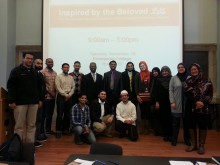
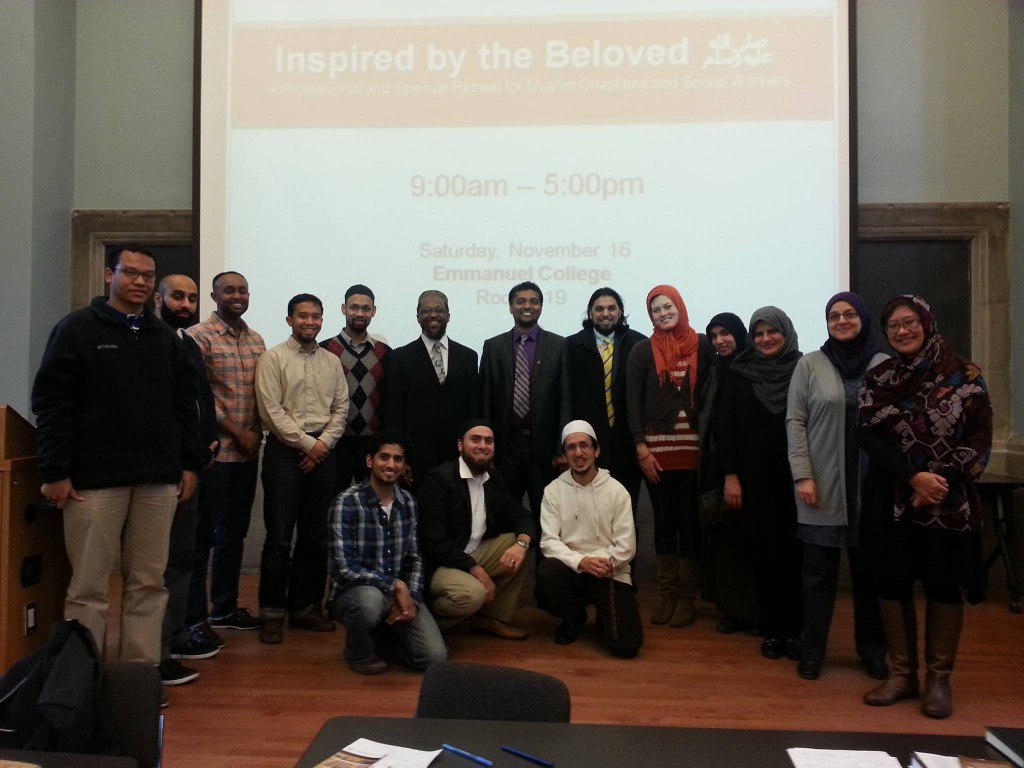






 Philippines
Philippines




